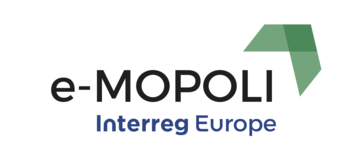In September 2019 started a preparation of Action plan for alternative fuels addressing Slovenian Operational Programme for the Implementation of the EU Cohesion Policy 2014-2020.
The Operational Programme for the Implementation of the EU Cohesion Policy 2014-2020 addresses support for the mobility on alternative fuel with measures of financing smart charging station for electric vehicles.
According to the Market Development Strategy for the Establishment of an Appropriate Infrastructure for Alternative Fuels in the Transport Sector in the Republic of Slovenia the share of vehicles on alternative fuel needs to increase to 37% until 2030. The number of personal electric cars should rise to 130 thousand until 2030, hybrid plug in cars target to reach the number of almost 72 thousand by the same year. The number of hydrogen cars aims to achieve almost 6 thousand vehicles. Total number of light commercial vehicles for the year 2030 predicts 11 thousand vehicles on electric power and 455 vehicles on hydrogen.
The predictions for the number of buses according to the fuel type in Slovenian are: more than a thousand buses on compressed natural gas, 215 buses with electric battery, 57 buses on hydrogen in 2030. Total number of heavy freight vehicles in 2030 is for 4 thousand of compressed natural gas vehicles, more than 2 hundred of baterry vehicles, less than 200 of plug-in hybrid and 800 of hydrogen vehicles.

According to the “The vehicle registration records valid on the 31st of December 2019 of the Ministry of Infrastructure” there have been 115 buses on compressed natural gas in Slovenia. There have been 6 fully electric buses, 1 diesel hybrid bus and 2760 diesel buses still in the end of 2019. The same source reveals that at the end of the last year there were 5924 petrol hybrid passenger vehicles and 396 diesel hybrid passenger vehicles and 2014 electric vehicles. The interesting information, rarely revealed, is that Slovenia has had on the specified date 82535 diesel tractors and 948 on gasoline and 16726 of diesel tow trucks. The table below shows also the number of other fuels and vehicle categories in December 31st 2019.

European INTERREG programme funded in 2018 a European project, e-MOPOLI, financing, among other, exchange of good policies for the promotion and support of the implementation of the mobility on alternative fuel. Each of the 9 partners are preparing policy proposal action plans to support the change from the fossil fuel mobility to the alternative fuel mobility.
The finalisation of the 9 action plans is planned for November 2020. However, preliminary action plans were introduced already in December 2019 in Jelgava, Latvia.


![[NEWS] Brescia: E-bike sharing in Brescia](/fileadmin/user_upload/tx_tevnewsevents/news/image_1664960602.jpg)
![[NEWS] Rogaland: battery-only high speed craft](/fileadmin/user_upload/tx_tevnewsevents/news/image_1664804367.png)
![[NEWS] BSC: promoting e-mobility in Gorenjska](/fileadmin/user_upload/tx_tevnewsevents/news/image_1660136312.png)
![[NEWS] BSC: new opportunities for cooperation](/fileadmin/user_upload/tx_tevnewsevents/news/image_1660136159.jpg)
![[NEWS] Rogaland: Solar power for electric airplanes](/fileadmin/user_upload/tx_tevnewsevents/news/image_1660135530.jpg)
![[NEWS] Bucharest: decarbonization of transports](/fileadmin/user_upload/tx_tevnewsevents/news/image_1656521459.jpg)
![[NEWS] Calabria: CENTRE FOR SUSTAINABLE MOBILITY](/fileadmin/user_upload/tx_tevnewsevents/news/image_1655983407.png)
![[NEWS] BSC: rental system network for bikes](/fileadmin/user_upload/tx_tevnewsevents/news/image_1655967495.png)
![[NEWS] Attica: Electromobility in Paiania](/fileadmin/user_upload/tx_tevnewsevents/news/image_1655110894.png)
![[NEWS] Attica: First e-bike festival in Athens](/fileadmin/user_upload/tx_tevnewsevents/news/image_1655110292.png)